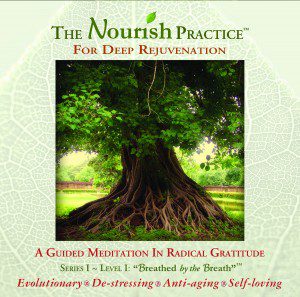 By Jack Adam Weber L.Ac., Dipl. C.H.
By Jack Adam Weber L.Ac., Dipl. C.H.
Contributing Writer for Wake Up World
It might seem cut and dry, unromantic, magic-dispelling, and too methodical to interview a potential partner about who they are and the values they hold dear. But, if you are seriously interested in someone, which you may be later, some investigation might be in order. If someone isn’t into having a matter-of-fact discussion about this, this might be the first sign they aren’t the right one for you.
As for the magic and the romance-busting nature of serious conversations early on in matters of the heart, I’ve had enough disappointments and heartbreaks that I am ready to sacrifice a little magic for a reality-check, because it isn’t so romantic or magical when relationships turn south due to myriad ways we can be incompatible.
[pro_ad_display_adzone id=”110028″]
Remember, most relationships begin “casually.” Yet, being casual without getting to know whom you are involved with can land you in a big blind bunch of trouble quick. Pursuing a casual relationship then down the road realizing that you are “in love” is a great way to sabotage your happiness and health. Hopefully you have been there, done that, and are ready to safeguard your happiness.
At the end of this writing I share with you my list of questions to ask and discuss with a potential partner. This list is particular to my needs, and I offer it for however it might inspire you to ask the kinds of questions that most matter to you and meet your needs. Receiving some feedback from such questions at least gives me preliminary answers long before discovering the ugly truth. Even if you are not sure where the relationship will go, if you are open to the possibility of a serious relationship it’s helpful to ask some questions of the person you are courting.
Deal-Breakers
In order to know what to ask someone, we have to know ourselves. We have to know what has worked for us and what hasn’t. We have to know to what degree we can be flexible with certain qualities in another and for which ones we cannot be flexible. We have to know what our deal-breakers are. So, the list is also an exercise in getting to know ourselves. If my lover doesn’t want children and I do, and this is a deal-breaker for me, why fall in love and have to go through a gut-wrenching break-up later? If I won’t tolerate drug use, and my potential mate wants to use, why go there? On the other hand, if my potential partner is a vegetarian and I need to eat meat sometimes, this can be a more workable scenario, and I identify it as such.
Discovering all this relatively early on in relationship (before we become all too eager to sacrifice what is meaningful to us for the sake of “love”), makes falling in love a lot more fun. And, if you make it through some sober compatibility conversations together, chances are you are on-board with someone who shares enough in common with you that there is enough magic to endure being smart about love.
Deal-breakers are needs for which you will cancel the relationship if your potential love does not meet these needs. This is not to say that your deal-breakers can’t shift, but it’s really good to be as honest as you can about this. We don’t want to put ourselves in the position where we have to sacrifice our core values later on because we are just to enamored to leave the relationship. This is the beginning of personal and relationship suicide.
When we get into a relationship, it takes a long time to get to know what a person is “really like.” I find that it takes at least two years to begin to really know someone. How they present themselves and what they say about themselves, especially if you meet on-line, can be far from how they really are. But, what we determine them to “really be like” is also tainted by our own perceptions. So, off the bat, asking for and trusting responses to our questions, as well as considering our own perceptions of “reality,” is an imperfect science. With this said, I think it’s still better to know something, or at least have a starting point to get some answers for questions that often take months, if not years, to get clear on simply through the course of everyday relating. Besides, if we are into growth and honesty, we can learn just as much about ourselves from our own questions as from our partner!
Even by getting responses to pointed questions, we will still have to wait to see how well our prospective partner matches up over time to their own assertions. We will also have opportunity to self-check ourselves for accurate perception of another. But at least we will have a starting point to get closer to the truth, to see how closely a person knows himself and how well we know our own selves. The questions themselves can inspire enlightening discussions to discover what our prospective partner is “really like,” as well as what we are really like.
Integrity
As I type, I recognize that my personal bias is revealing itself here: wanting to discover the truth about another person and myself presupposes that integrity is a foundation for a healthy and harmonious relationship. I think that most of us interested in a serious relationship care about integrity. It is certainly at the top of my list. So that you know what I mean, I’ll am defining “integrity” as a catch-all term that includes core qualities such as honesty, humility, compassion, empathy, good thinking, responsibility, follow-through, keeping agreements, morality, and commitment.
To value integrity as a viable need and priority in relationship, I want to be sure that I have integrity, that the core qualities I seek in another I have myself. Part of integrity for me is that I can’t really ask or expect that my partner be something that I am not. I can, however, have specific needs that don’t have to be met by the other. For example, if my partner does not like that I leave my clothes on the couch, this does not necessarily mean that she should not put her clothes on the couch, unless I genuinely mind her doing so for more than just “equality” reasons. Clothes on the couch is a matter of preference and style, and she likely has specific reasons for her wish which are personal to her, and which don’t apply to her clothes on the couch, just mine. A brief, levelheaded discussion about the matter will hopefully clarify the reasons for her wish and settle feelings of inequality or wonderings about a double standard (ha, but not always!).
When it comes to general qualities of integrity such as honesty, keeping our word, acting on our values, listening and considering one another’s opinions, having a heartfelt purpose for one’s life, and keeping agreements, I have found that if I want these things in another, it’s important that I possess them myself. Sometimes, or unfortunately often, one person will want qualities from another that they themselves don’t have. In fact, we are often attracted to others that display qualities that we wish we had more developed. An insistence on these qualities from another is often a projection of what we lack and secretly wish we had.
Not recognizing when we project and displace our desires onto another sows the seeds for resentment, attack, and conflict. Whereas, a humble reckoning that we are attracted to what we lack takes responsibility for our own shortcomings and leads to admiration and personal growth, instead of attack and resentment. This is a great benefit of shadow work, by the way—recognizing our own lack can create more intimacy as opposed to distance. Recognizing our projections can lead to a three-fold win: 1) we stop projecting and minimize conflict and 2) we get to return our focus to ourselves and grow in ways that we want to and 3) we become more understanding, compassionate, and less demanding towards our (potential) partner.
In Sum
For my Top-20 list I chose questions that are most important to me. Some of them are deal-breakers, answers to which could preclude my interest from getting serious. I composed many-part questions, as you will see, and I am always adjusting this list as epiphanies occur to me. Ideally, the questions are discussion-starters, a platform to get to know someone better (including myself). If we are interested in a serious long-term relationship, or the possibility of one, I think it’s important to ask the serious questions and to think of all the deal-breakers we can, because if we discover them later, even if we are getting along great, the deal-breakers bring heartbreak, or compromise our own vision for our lives to a degree that we may not be able to respect ourselves in the relationship, which wreaks havoc both personally and interpersonally.
Of course, it’s up to us when, if, how, and to what degree we want to present and discuss our list with another. If your partner doesn’t want to discuss the list this can be a clue in itself as to your compatibility, depending on the reason. So, this list is a questionnaire, discussion-starter, as well as a self-inquiry shadow list to self-check that you possess what you want or require in another, and may want to cultivate if you don’t. At the very least, composing a list can help you get more clear on what your own values are and what’s important to you in your own life. I hope it saves you some grief.
Top-20 List
1) Are you comfortable with anger?
- What do you do when you get angry and how do you express it?
2) Do you have a bodily, felt-sense of your purpose for being alive?
- How do you express it and are you pursuing your vision?
3) What kind of emotional healing work have you done with regard to childhood wounds?
- What have you done and how have you come to terms with your past?
- What is your relationship with your parents and how has that affected your life, and how have you dealt with that?
4) Are you complete with your previous romantic relationships?
5) What is your method and approach for dealing with conflict?
6) What percentage of your need fulfillment do you usually seek from a partner and what percentage do you anticipate you will look for me to fill?
7) What is your interest in our relationship?
- a) Do you want to casually date only, or do you want to be in a committed relationship?
- b) Are you wanting to be married, and if so, do you want children?
8) Are you passionate about world events and dedicating some of your time to the greater good—for example, being some kind of activist or doing charity work?
9) Do you respect alone time and if so to what extent?
- If not, to what extent will you need to be with me?
- Will you be comfortable with my needing semi-privacy while am writing and working?
10) What is your relationship with money?
- Are you thrifty?
- On what do you feel it is worth to spend lavishly?
- Do you have significant debts you owe?
11) To what degree are you (honestly now!) honest with yourself and able to be honest with others?
12) What top three qualities do others most appreciate about you?
- What top three qualities do others most criticize in you?
13) How do you have fun and what does “fun” mean to you?
14) What values do you hold dearest and how do you express them in your daily life?
15) What are your strengths and how do you employ them in your daily life.
16) What do you consider your shortcomings and what are you doing about them?
17) Do you like being in nature and living a natural lifestyle?
- Are you attached to living in the city?
18) How much do you like to have sex, and why?
- How do you feel about minimizing sex as a means of intimacy and focusing instead on vulnerable emotional connection and sensuality for affection?
19) What do you consider your greatest successes in life?
- What do you consider your greatest failures?
20) How readily are you able to admit your shortcomings and apologize when you fall short of being respectful?
Bonus question!
21) What is your view of compromise in a relationship?
- What are you willing to compromise and what are you not willing to?
The Nourish Practice
Jack Adam Weber’s “The Nourish Practice” is an easy, guided meditation-Qi Gong practice in radical gratitude and self-love. It is an Earth-based, body-centered practice — at once physiological and mythological — that is deeply relaxing and replenishing, especially for modern-day burn-out syndrome, and requires little physical effort.
The Nourish Practice “resets your nervous system” and fosters a rich inner life. You can purchase The Nourish Practice as a CD or Digital Download here.
Previous articles by Jack Adam Weber:
- Relationships: The Costs of Staying When We Should Leave
- Emotional Work
- Choosing a Partner – How to Avoid Relationship Suicide
- Re-Thinking Love: Why Our Hearts Must Also Be Minded
- Spirituality – Reality Check
- 11 Crucial Tips for Better Digestive Health
- Shadow Work: Becoming a Sustainable Light Worker (Part 1)
- Oneness in Action: The GMO Eradication Movement
- After the Hurricane: Lessons from the Heart of Nature
- Relationships: How They Can Make Us Happier
- Heartbreak – Loving Ourselves Through Difficult Times
About the author:
 Jack Adam Weber, L.Ac. is a Chinese medicine physician, author, celebrated poet, organic farmer, and activist for body-centered spirituality. His books, artwork, and provocative poems can be found at his website PoeticHealing.com. He is also the creator of The Nourish Practice, an Earth-based rejuvenation meditation. Weber is available by phone for medical consultations and life-coaching.
Jack Adam Weber, L.Ac. is a Chinese medicine physician, author, celebrated poet, organic farmer, and activist for body-centered spirituality. His books, artwork, and provocative poems can be found at his website PoeticHealing.com. He is also the creator of The Nourish Practice, an Earth-based rejuvenation meditation. Weber is available by phone for medical consultations and life-coaching.
You can connect with Jack Adam Weber on Facebook or by emailing Jack@PoeticHealing.com.
[pro_ad_display_adzone id=”110027″]







